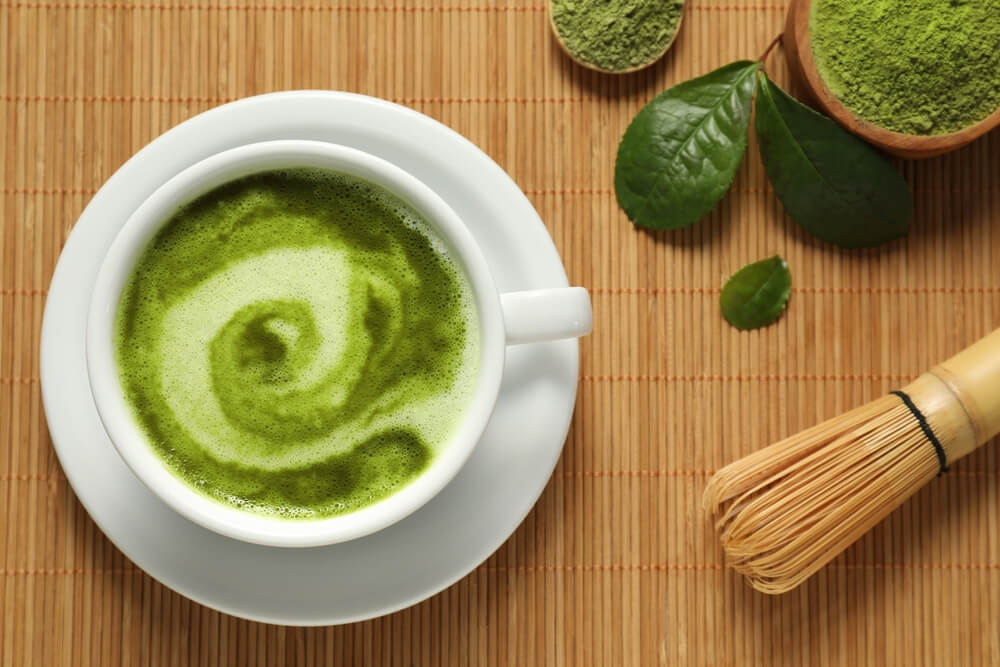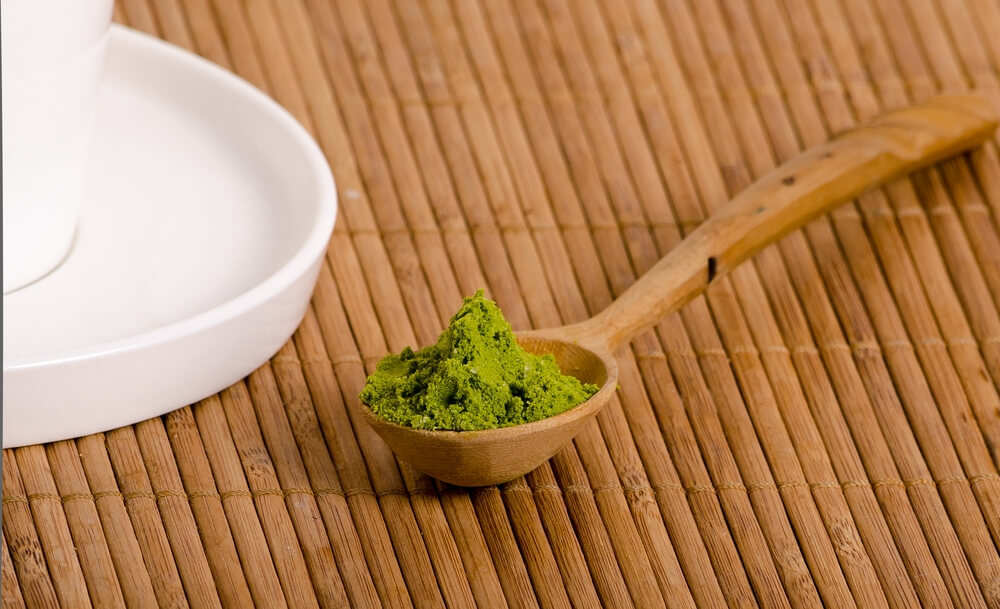
Matcha, a finely ground powder of specially grown and processed green tea leaves, has been a staple in Japanese culture for centuries. Unlike traditional green tea, where leaves are steeped and then discarded, matcha involves consuming the entire leaf. This unique preparation method contributes to its distinct flavor and vibrant green color.
One of the primary benefits of matcha is its high concentration of antioxidants, particularly catechins. These compounds help combat free radicals in the body, potentially reducing the risk of chronic diseases. Additionally, matcha contains L-theanine, an amino acid that promotes relaxation without drowsiness and works synergistically with caffeine to provide sustained energy levels.
So why drink matcha? Beyond its health benefits, many people appreciate its versatility. Matcha can be enjoyed as a hot or cold beverage or incorporated into various culinary creations like smoothies, lattes, and baked goods. The growing popularity of this green tea powder is not just a trend; it’s a testament to its multifaceted advantages and rich cultural heritage.
How Much Caffeine Does Matcha Actually Contain?

When it comes to the caffeine content in matcha, many people are curious about how much caffeine it actually contains and how it compares to other beverages like coffee and traditional green tea. Matcha, a finely ground powder made from specially grown and processed green tea leaves, is known for its vibrant color and numerous health benefits. But does green tea have caffeine? And if so, how does the caffeine in matcha measure up?
The caffeine content of matcha tea can vary depending on the quality of the matcha and how it’s prepared. On average, one serving (about 1 teaspoon or 2 grams) of matcha contains approximately 70 milligrams of caffeine. This is higher than the average cup of regular green tea, which typically contains around 20-30 milligrams per serving. However, it’s still less than a standard cup of coffee, which usually has about 95 milligrams or more.
One reason for this difference is that when you drink matcha, you’re consuming the entire tea leaf rather than just an infusion as with regular brewed teas. This contributes to a higher concentration of nutrients and compounds like caffeine. Additionally, matcha provides a more sustained energy boost without the jittery side effects often associated with coffee due to its unique combination of caffeine and L-theanine—a natural amino acid that promotes relaxation.
In summary, while both green tea and matcha contain caffeine, the levels are significantly higher in matcha due to its powdered form and consumption method. For those looking to compare caffeine levels between their favorite beverages, understanding these distinctions can help make informed choices about their daily intake.
Caffeine in Matcha vs Coffee
When it comes to choosing between matcha and coffee for your caffeine fix, understanding the differences can help you make an informed decision. Both beverages offer unique benefits, but they affect your body in distinct ways.
Matcha vs Coffee Caffeine Content
Matcha, a finely ground green tea powder, contains about 25-35 mg of caffeine per half teaspoon (1 gram). In contrast, a typical cup of coffee has about 95 mg of caffeine. While coffee provides a quick and intense energy boost due to its higher caffeine content, matcha offers a more gradual increase in alertness because it contains L-theanine, an amino acid that promotes calmness and focus.
Energy Boost from Matcha
The combination of caffeine and L-theanine in matcha creates a balanced energy boost without the jitters or crashes often associated with coffee. This makes matcha an excellent choice for those who need sustained concentration throughout the day. Additionally, many people find that the steady release of energy from matcha helps improve productivity and mental clarity.
Benefits of Matcha Over Coffee
Beyond its unique caffeine profile, matcha boasts several health benefits that make it an appealing alternative to coffee. It is rich in antioxidants called catechins, which support immune function and protect against oxidative stress. Matcha also contains chlorophyll, which aids in detoxification and promotes healthy skin. Furthermore, drinking matcha can enhance metabolism and support weight management efforts.
Ultimately, whether you choose matcha or coffee depends on your personal preferences and how your body responds to each beverage’s effects. If you’re looking for a smoother energy boost with added health benefits, incorporating matcha into your routine might be worth considering as a viable coffee alternative.
The Unique Benefits of Matcha Caffeine Compared to Other Sources
When it comes to caffeine consumption, matcha offers a unique set of benefits that distinguish it from other sources like coffee or energy drinks. One of the most notable advantages is the combination of caffeine and L-theanine, an amino acid found naturally in matcha. This duo works synergistically to provide a balanced and sustained energy boost.
Unlike the rapid spike and crash often associated with coffee, matcha delivers a more stable form of energy. The L-theanine helps to mitigate the jittery effects of caffeine, promoting a state of calm alertness. This makes it an excellent choice for those who need prolonged focus and concentration throughout the day.
Moreover, matcha health benefits extend beyond just energy enhancement. Rich in antioxidants, particularly catechins like EGCG (epigallocatechin gallate), matcha supports overall well-being by combating oxidative stress and inflammation. Regular consumption can contribute to improved mental clarity, enhanced mood, and even better physical performance.
If you’re looking for a source of sustained energy that also offers additional health perks, matcha stands out as an exceptional choice. Its unique blend of L-theanine and caffeine ensures you stay energized without the unwanted side effects commonly experienced with other caffeinated beverages.
How to Incorporate Matcha into Your Daily Routine for Optimal Energy Levels
Incorporating matcha into your daily routine can be a game-changer for maintaining optimal energy levels. Matcha, a finely ground powder of specially grown and processed green tea leaves, is known for its numerous health benefits, including sustained energy without the jitters often associated with coffee.
Daily Matcha Consumption Tips
To start your day with an energy boost, consider replacing your morning coffee with a cup of matcha tea. The preparation is simple and can be done in just a few minutes. Begin by sifting 1-2 teaspoons of matcha powder into a bowl to remove any clumps. Add hot water (not boiling) and whisk vigorously in a zigzag motion until the tea becomes frothy.
How to Make Matcha Tea
For those new to making matcha tea, here’s an easy step-by-step guide:
- Measure 1-2 teaspoons of matcha powder.
- Sift the powder into a bowl to ensure smoothness.
- Heat water to just below boiling (around 175°F or 80°C).
- Pour the hot water over the sifted matcha.
- Whisk briskly in an M or W motion until frothy.
- Enjoy immediately for best flavor and benefits.
Incorporating Matcha into Your Diet
Beyond traditional tea, there are numerous ways to incorporate matcha into your diet:
Smoothies: Add a teaspoon of matcha powder to your morning smoothie for an extra boost of antioxidants and energy.
Baking: Infuse baked goods like muffins, cookies, or pancakes with matcha for added nutrients and vibrant color.
Lattes: Create creamy lattes by blending matcha with milk (dairy or plant-based) and sweetening it with honey or maple syrup.
By integrating these daily matcha consumption tips into your routine, you can enjoy steady energy levels throughout the day while reaping additional health benefits such as improved focus and enhanced metabolism.
The Potential Side Effects of Consuming Too Much Matcha Caffeine
Matcha, a finely ground powder made from specially grown and processed green tea leaves, has become increasingly popular due to its rich flavor and numerous health benefits. However, like any caffeinated beverage, consuming too much matcha can lead to potential side effects that are worth considering.
One of the primary matcha side effects is related to its caffeine content. While matcha contains less caffeine per serving compared to coffee, it still provides a significant amount of this stimulant. Excessive caffeine intake can lead to warning signs such as jitteriness, insomnia, headaches, and an increased heart rate. It’s essential for individuals sensitive to caffeine or those who consume multiple caffeinated drinks throughout the day to be mindful of their total intake.
Balancing your intake of caffeinated drinks is crucial for maintaining overall well-being. To avoid the adverse effects of too much caffeine from matcha or other sources, consider limiting your consumption and paying attention to how your body responds. Incorporating decaffeinated beverages into your routine or alternating between caffeinated and non-caffeinated options can help manage your daily caffeine levels effectively.
While matcha offers numerous benefits and can be a delightful addition to your diet, it’s important to consume it in moderation. Being aware of the potential side effects and balancing your intake will ensure that you enjoy this vibrant green tea without compromising your health.
Embrace the Benefits of Match with a Balanced Approach to Caffeine Consumption
Matcha, a finely ground powder made from specially grown and processed green tea leaves, offers a multitude of health benefits that make it an excellent addition to your daily routine. Rich in antioxidants, particularly catechins like EGCG, matcha helps combat oxidative stress and supports overall cellular health. Additionally, the presence of L-theanine in matcha promotes relaxation and enhances focus without the jittery side effects often associated with other caffeinated beverages.
However, it’s important to approach matcha consumption with balance. While it does contain caffeine, moderation is key to reaping its benefits without experiencing negative side effects such as insomnia or increased heart rate. For most people, one to two servings per day is sufficient to enjoy its energizing and health-promoting properties.
Incorporating matcha into your lifestyle can be as simple as enjoying a traditional cup of matcha tea or getting creative by adding it to smoothies, lattes, or even baked goods. By doing so mindfully and understanding your personal tolerance levels for caffeine, you can fully embrace the myriad advantages that this vibrant green superfood has to offer.
In summary, matcha provides an array of health benefits that can enhance both physical well-being and mental clarity. By maintaining a balanced approach to caffeine consumption and integrating this powerful antioxidant-rich beverage into your diet thoughtfully, you can make the most out of what matcha has to offer while ensuring optimal health and wellness.



